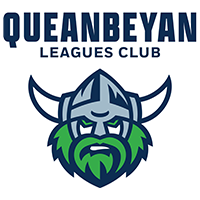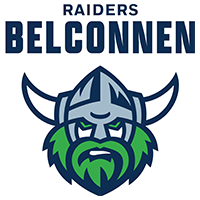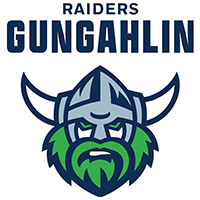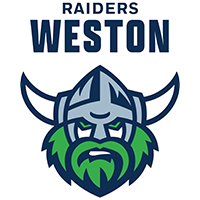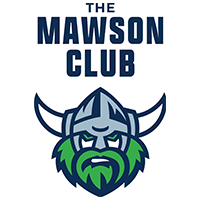It looks like you may be using adblocking software to view this site.
Many features on the site, such as video playback, may not work properly when using adblocking software.
Please whitelist our domain or disable your adblocker to access all features and videos.
Canberra Raiders Historian David Headon has penned an obituary for Don Furner senior for today's Canberra Times.
Don Furner senior, a wise and gracious footballing statesman in later life, died last week after a long battle with illness. He was 88. It was only fitting that The Canberra Times featured a wonderful memorial photograph of him, together with Mal Meninga, on its front page. Don is sporting his captivating smile, looking across at Meninga, the champion player he miraculously recruited at the end of 1985 from right under the nose of the perennially cashed-up Manly and Eastern Suburbs clubs. The photo needs no words. It speaks volumes.
After all, here were the two men who, more than any others, enabled a bush team of mostly country footballers to storm the ramparts of the NSWRL and establish a Green Machine dynasty - a dynasty first forged by Don's coaching in the tough times during the club's first years, when the team weathered plenty of heavy defeats. Vital foundations were being laid by an imperturbable coach, happy to play the long game.

His extraordinary legacy will forever have a place deep in the hearts of all Raider fans.
Don Furner was born on Boxing Day 1931, in the remote, far-western NSW town of Condobolin, a couple of years into the Great Depression. Early life for him and his brother, Kevin, was hard, made even more challenging when an alcoholic father, a rigger on the Sydney Harbour Bridge, deserted the family. Don's mum, 'Nan' to her grandkids, somehow ensured that her two boys, growing up poor near the Balmain docks, were loved, cared for and instilled with a set of decent, humane values.
Despite being a part of sporting and social circles in adulthood that had more than their share of men's men of the Old School, Don was a lifelong teetotaller and non-smoker. He never swore.

From an early age playing junior football in Balmain, the young Don knew that he was pretty good at rugby league. He embarked on a career in the game as a hard-working second-rower playing for a number of clubs across both NSW and Queensland, including Souths, Roma, Junee and Queanbeyan. He went on to represent Queensland on nine occasions and toured England with the 1956-7 Kangaroos, playing in the Second Test at Oldham. The Kangaroos team he played in (as a substitute for an injured Norm Provan), dismissed as the 'worst ever', won the game easily, and it was reported that 'Star of the forwards was Queenslander, 24-year old Don Furner'. Inexplicably, Oldham was Don's one and only Test.
Playing in an uncompromising era, Don's football was aided by his skills in the ring. He could fight, having eight professional bouts in his early 20s, the last of them when he attempted, unsuccessfully, to win the Australian heavyweight title in Brisbane in 1953. The bigger Cec Meredith knocked him out in the third round. At his mum's urging, he gave boxing away to focus on his footy.
With decent money to be made as a captain-coach in the country, Don had considerable success, winning the Group 20 competition in Tumbarumba in 1960 and the Maher Cup at Junee in 1964. Tumbarumba was special for him, for there he met and married a local, Marian Walsh, a marriage which produced three children: daughter Catherine, now working as a health professional in Canberra; Don, the Raiders' long-time CEO; and club legend, David.
In 1965, Don and the family headed to Queanbeyan for him to coach the upwardly mobile Blues, a life-changing move. He would go on to coach the Blues to an astonishing 10 premierships in 13 years, in the middle of this run being lured to Sydney to coach Easts for three years, and making the 1972 grand final. In the same year, however, he had a heart attack, enough to convince him to return to the bush, and the Blues.
Don was an obvious choice to coach NSW Country, which he did on several occasions between 1969 and 1977.
The Furner CV, his reputation, grew further. About this time, prominent Queanbeyan citizen and the town's unofficial mayor, Les McIntyre, began to work on his dream to have a local team in the elite Sydney competition. Don's recruitment, Les knew, gave the bid a necessary credibility. The contract going forward between Les and Don was 'signed' with a handshake.
The rest as they say is history, a unique history familiar to all Canberra Raider true believers. The team almost made the semi-finals in 1984, in only its third year, Don recruited the great Meninga, other champion Queenslanders and champion local footballers followed, and suddenly the expansion team was in a grand final in its sixth season, and on the cusp of winning three competitions over the next few years. Ricky Stuart recently recalled that when the Raiders won their first title in 1989, Don and Les McIntyre were like 'proud dads'.
The year of the first grand final appearance, 1987, was Don's last as Raiders' coach. With coaching techniques changing, he had the good judgement to know that he had to change too. A young Wayne Bennett was brought on as co-coach, and the pair established a relationship so successful that the combination received the Dally M Coach of the Year Award. Bennett recently said: 'I don't believe I would be where I am today ... without that year with him'.
Indeed, Craig Bellamy, Ricky Stuart, Kevin Walters and Mal Meninga have all paid warm tribute to Don Furner's tuition and low-key mentoring when summing up his crucial influence on their own playing careers and coaching styles. For it was Don who first committed the Raiders to a fast, open style of play that re-set the parameters of the dour way the game was being played. Raider football stands out above the rest.
Don continued his busy involvement in the game after 1987, as Australian coach and later Australian selector for many years. Numerous awards followed, among them an Order of Australia, Life Membership of the Raiders, an Australian Sports Medal, a place in the ACT and Queanbeyan Halls of Fame, and Patron of the Men in League project.
Yet none of these awards quite captures the description used by everyone he knew. Don Furner was a gentleman, in the game he loved, rugby league, and in life. He is survived by his wife, Lee; her children, Adam and Nathan; Don's first wife, Marian; children Catherine, Don and David, and their wives Karen and Kellie; and grandchildren Elly, Ryan, Alannah, Maddison, Kyle, Isabella, Hamish and Paddy.
David Headon is the author of Absolutely Bleeding Green: The Raiders Story.








